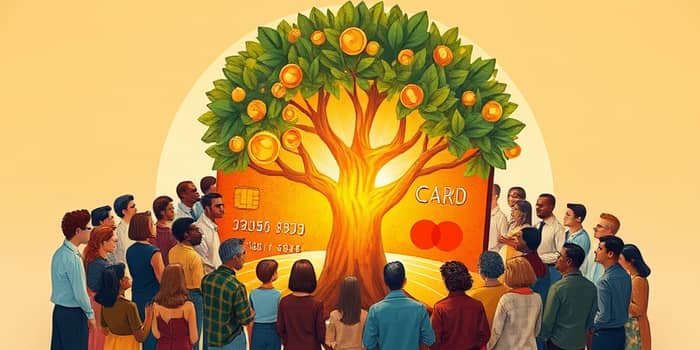
Credit cards have become woven into the fabric of modern life, offering convenience and opportunities to those who wield them wisely. Yet, like any powerful tool, they carry inherent risks when handled without care. This guide is designed to inspire confidence, foster responsibility, and equip you with smart credit card habits and strategies that can transform your financial landscape. By understanding both the benefits and the pitfalls, you can harness credit to build stability rather than succumb to debt.
In recent years, credit card usage has surged dramatically. In 2022 alone, credit cards accounted for nearly 30.77% of all transactions, making them the most popular payment method in the United States. As of Q1 2024, over 543 million credit cards circulate across the country, with the average American carrying approximately 3.9 cards. This proliferation reflects consumer trust, evolving economic pressures, and the desire for flexible payment options.
Yet statistics tell only part of the story. Behind every swipe lies a decision: will this momentary convenience grow your creditworthiness or plunge you deeper into financial stress? By forging intentional habits today, you set the stage for a future of abundance and security.
When wielded thoughtfully, credit cards can become powerful allies in your financial journey. They enable you to build credit history, secure purchase protection, and even earn rewards that bolster your savings. The key lies in adopting practices that maximize these benefits without incurring high costs or debt traps.
By centering your actions on discipline and foresight, you can unlock the full potential of rewards programs and transform routine expenses into financial growth.
Despite their advantages, credit cards can also usher in significant peril. American credit card debt has soared beyond $1.2 trillion, with many cardholders struggling to pay off outstanding balances. Even a slight misstep—like paying only the minimum required—can trigger a cycle of compounding interest that becomes daunting to escape.
Delinquency remains a concern as well. Approximately 3.05% of credit card balances are at least 30 days overdue. Meanwhile, average unpaid balances per cardholder hover around $7,321, underscoring the emotional toll and financial strain many experience when overspending outpaces repayment capacity.
High APRs amplify these risks, turning manageable balances into crushing obligations. Awareness of such dangers provides the first line of defense against the temptation to overspend.
Incorporating simple yet powerful routines can safeguard your financial health. Commitment and consistency, rather than sheer willpower, underpin these strategies. Over time, they evolve into automatic practices that steer you away from debt and toward growth.
By anchoring these habits in your routine, you create an ecosystem of accountability—one that encourages steady progress toward your financial goals.
No one is born with mastery over credit; it is a skill honed over time. Parents and mentors play crucial roles in transmitting wisdom about money management. By modeling prudent behaviors and facilitating open conversations about credit, family members can arm young adults against costly mistakes.
Additionally, a wealth of resources now exists to guide those seeking deeper understanding. From interactive budgeting apps to professional counseling services, you can access tools tailored to your circumstances. Engaging with educational workshops and online tutorials fosters confident decision-making and long-term stability, turning uncertainty into empowerment.
Credit cards are not solely the domain of consumers; businesses, especially small enterprises, lean on them for operational liquidity. The average small business reports monthly credit card expenditures of around $13,000, using these cards to manage cash flow, cover unexpected expenses, and streamline procurement.
On a macroeconomic level, credit card trends mirror broader patterns in consumer confidence and spending habits. Periods of robust economic growth often coincide with increased card usage, while downturns trigger more cautious borrowing. Understanding this interplay can help both individuals and companies craft strategies that align with the economic climate.
Credit cards, wielded with respect and intention, can propel you toward a future of financial resilience. By internalizing prudent financial habits and planning, you shield yourself from the pitfalls of debt and unlock opportunities for growth, freedom, and peace of mind. Every payment you make, every statement you review, and every reward you redeem brings you one step closer to financial mastery.
Embrace the journey of continual learning. Lean on trusted mentors, leverage educational resources, and be vigilant in monitoring your accounts. In doing so, you transform credit cards from potential pitfalls into powerful allies on your path to lasting stability and success.
References













